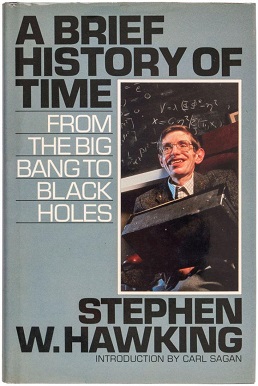Larry McMurtry, Walter Benjamin at the Dairy Queen
This notion of books as a "fuel of genius" strikes me as apt. We might compare a stack of books to a stack of firewood. Each is, at least potentially, fuel, one for genius, the other for fire. Yet neither becomes fuel until it is consumed. Those books stored in Archer City warehouses will do little good until somebody actually reads them.
I know from experience how easy it can be to have the notion in the back of our minds that simply possessing a book somehow makes us smarter. Think of all those dutiful parents who, a few years back, bought costly encyclopedia sets thinking they would make their children better students. In some cases that may have happened, but only if the children actually consulted the books when doing their homework. Most of the time encyclopedia just took up shelf space.
Or consider Stephen Hawking's famous book A Brief History of Time, which became a bestseller a number of years back. How many people who bought the book actually read it? And how many of those who read it understood it? Not many, I'll bet. I am among those who bought it, read it and didn't understand it. Yet we all felt somehow smarter just having the book on our shelf.
When both read and understood, books are a fuel of genius. Not only do they convey information, but they also stimulate thought and creativity. Writers, Larry McMurtry included, create new books by consuming older books and thinking about what they've read. Our best physicians, engineers, lawyers, artists, scientists, etc., had their genius fueled by books. Not books alone, but books along with other forms of experience.
Books are not the source of genius, but just a fuel of genius. They don't start the fire. A genius for one thing or another is mostly something we are born with. Books can only fuel that genius, providing they are first consumed.

No comments:
Post a Comment